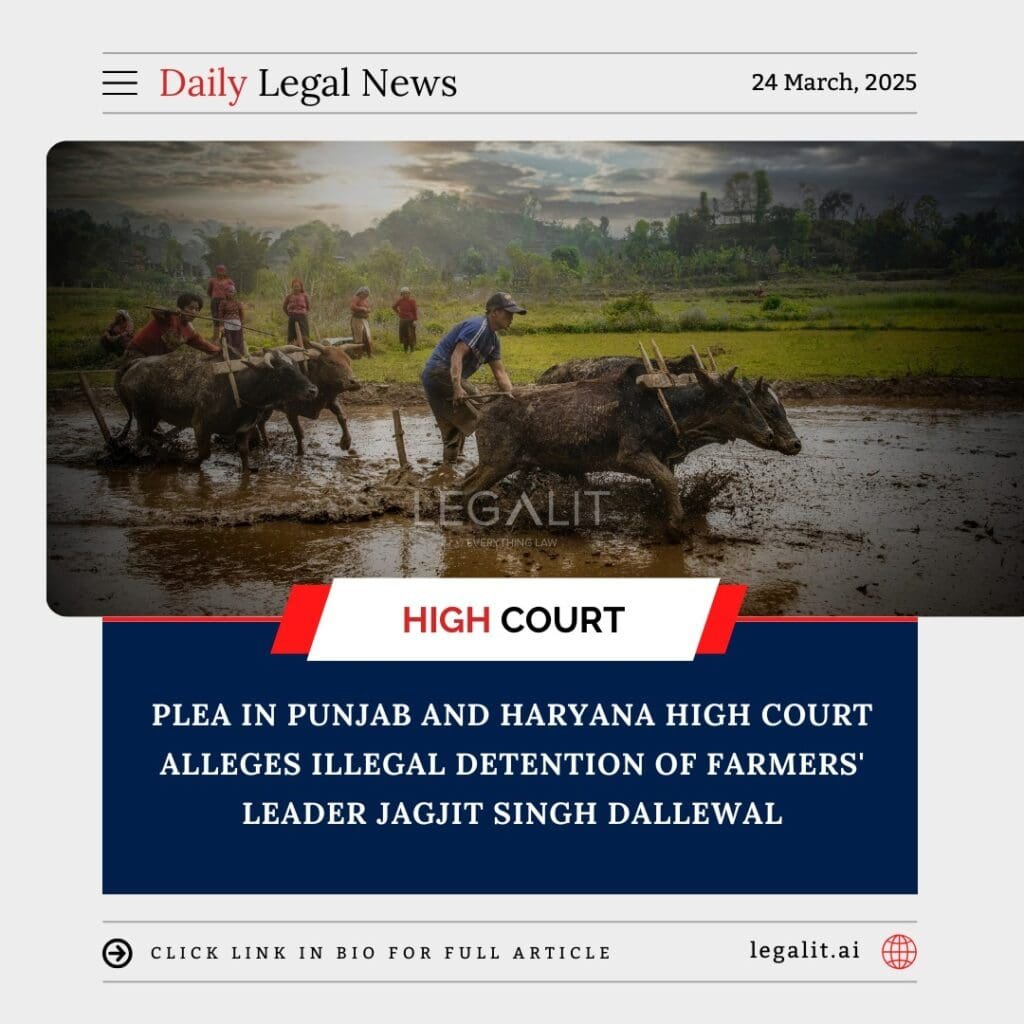
Background
A petition has been filed in the Punjab and Haryana High Court alleging the illegal detention of farmers’ leader Jagjit Singh Dallewal. The plea claims that Dallewal, a prominent figure in the farmers’ movement, has been unlawfully held by the authorities without following due legal procedures. The petitioners argue that his detention is an attempt to suppress ongoing farmers’ protests.
Petitioner’s Arguments
- Violation of Fundamental Rights
- The plea asserts that the detention of Jagjit Singh Dallewal violates his fundamental rights under Article 21 (Right to Life and Personal Liberty) and Article 22 (Protection Against Arbitrary Arrest) of the Constitution of India.
- It contends that the authorities failed to provide valid reasons or follow due process while detaining him.
- Suppression of Protest
- The petition argues that the detention is an attempt to curtail the farmers’ right to peaceful protest, which is protected under Article 19(1)(a) (Freedom of Speech and Expression) and Article 19(1)(b) (Right to Assemble Peacefully).
- It claims that the government is using illegal detention to intimidate leaders and dismantle the farmers’ movement.
- Demand for Immediate Release
- The petition seeks the immediate release of Jagjit Singh Dallewal, arguing that his continued detention is arbitrary and unlawful.
- The plea also requests the court to direct the authorities to disclose the legal basis for his arrest.
Government’s Stand
- The state authorities are expected to justify the detention by citing concerns over law and order and public safety.
- It is likely that the government will argue that Dallewal’s detention was necessary to prevent disruptions arising from the ongoing farmers’ protests.
Legal Framework
- Article 21 and 22 of the Constitution
- Guarantees protection against arbitrary detention and ensures that anyone detained must be informed of the reasons and have the right to legal representation.
- Preventive Detention Laws
- The authorities may invoke preventive detention provisions under laws such as the National Security Act (NSA) if they believe Dallewal poses a threat to public order.
Implications of the Case
- Impact on Farmers’ Protests
- A ruling in favor of Dallewal could strengthen the farmers’ movement by reaffirming the right to protest without fear of arbitrary detention.
- Conversely, if the court upholds the detention, it may set a precedent allowing stricter state measures against protest leaders.
- Judicial Oversight of State Actions
- The case underscores the role of the judiciary in ensuring that the state does not misuse its powers to suppress dissent.
- Political Ramifications
- The case could escalate political tensions between farmers’ organizations and the government, especially if the court’s decision is seen as endorsing the state’s actions.
Conclusion
The Punjab and Haryana High Court’s decision on the plea challenging Jagjit Singh Dallewal’s detention will have significant implications for the farmers’ protests and the broader issue of constitutional protections against arbitrary state action. If the court rules in Dallewal’s favor, it may reaffirm the right to peaceful protest and limit the state’s ability to detain protest leaders without sufficient legal grounds.